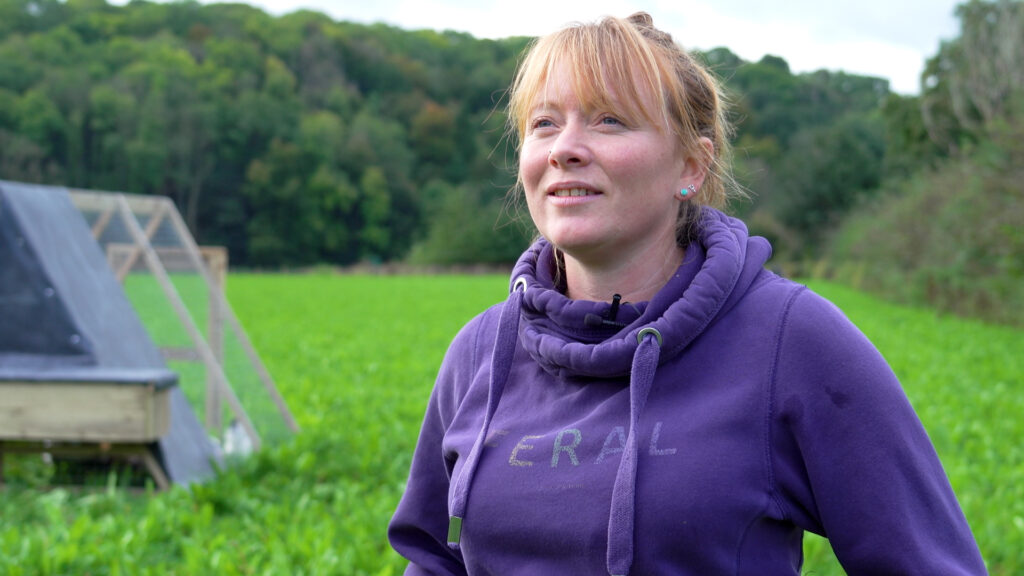
Sam Kenyon has been farming regeneratively on her and her husband’s farm in North Wales since 2020. Focusing on soil health, she has introduced herbals lays at Glanllyn Farm, St Asaph, Denbighshire as a natural way of fixing nitrogen in the soil, avoiding chemical fertilizer and improving the health of her small flock of 90 Welsh mule ewes.
She said: “The herbal ley is amazing stuff. At first the sheep didn’t touch the chicory, but by the end of summer they really tucked into it, and I’ve only just had to dose a few for worms for the first time in a year. Some people look on a spreadsheet to check everything’s alright; I look at the sheep’s muck to check on livestock health and for the insects that depend on them. If you over worm your animals, you will kill a lot of important invertebrates that live in the muck and soil, too.”
In addition to the herbal leys, natural fertilizer is spread by chickens whose coups are moved each day, ensuring their droppings are spread across the field. Weed control comes in the form of Sam’s beloved herd of dual breed goats, which can rid a field of thistle flowers, so stopping them from seeding. She said: “We know that everything that lives in the soil food web is benefitting from no synthetic fertilizers or pesticides and seeing the leys full of pollinators in summer is really rewarding, you feel like you’re doing something right, which is good for mental health, too.”
Mitigating the loss of soil into the River Elwy, which runs through the farm has met with equal success. A buffer margin has been fenced off along the watercourse, where previously the fields were ploughed up to the edge of the river causing the earth banks to collapse during flash floods. To further strengthen the bank, it has been scraped back at a 30% angle with coppiced willow trees buried within the bank. The willow sprouts from the trunk and eventually roots will hold the soil from slipping into the river.
Sam said: “It’s worked amazingly. It’s almost like nature’s trying to solve its own problems and conventional farming is trying to stop that. When we fenced off the river and allowed natural regen on the other side of the fence. A great variety of plants that were dormant in the soil came back.”
Sam sells her pasture-fed lamb and goat direct to local customers through a meat box scheme, so cutting the carbon footprint of distribution. Looking ahead, she hopes to restore a dilapidated farm building to serve as a classroom to host children visiting the farm to connect with the natural world and learn about regenerative farming. She said: “You can waste a lot of money trying to fight nature. To my mind it’s better to work with her.”